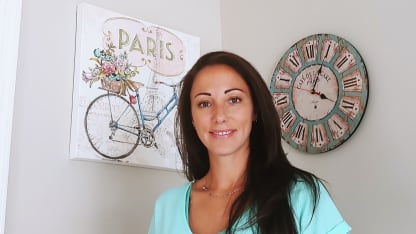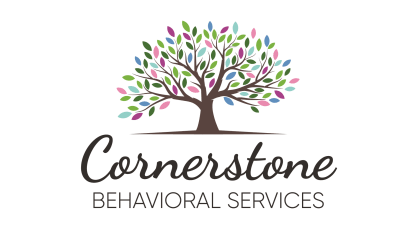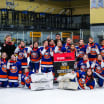"Our team has been working so hard to navigate the new normal," Iannarone said. "The adults - even myself, I struggled - it was such a drastic change. For these kids who are routine-oriented, have homework and anxiety struggles to have changes in their routines, changes in their daily structure, hasn't been easy. We've been working so hard to help all of these kids adjust and are really working on trying to create routines and structures in their homes to try and mimic and provide normalcy in some capacity."
Cornerstone Behavioral Services is based out of Wantagh, New York and works closely with the community to help provide services for children from preschool to adulthood. Iannarone and her team of behavioral analysts work with a wide range of disabilities that extend even outside of the classroom. Iannarone helps create and oversee the programs the behavioral analysts use to help children focus on language development, social skills training, and behavior management strategies.
Having to adjust to remote learning, Iannarone and her team use technology to their advantage to help create individualized programs for children to stay engaged while continuing to learn.
"A lot of our kids love technology, we were able to capitalize on that," Iannarone said. "Initially, we weren't able to provide in-home, but that changed very quickly and we were one of the first to go back and we resumed in-home. Even prior to that, we used technology to make it really fun for them to get on the computer with us. We found all of these interactive games for the kids. We were able to create a fun, interactive platform. That was something that - if you'd asked me prior to the pandemic - we'd have been able to do. We made [remote learning] successful. It was really amazing to see."
Iannarone and her team found that they were still able to emulate daily routines and structure for children even from home. They helped assemble detailed schedules that were personalized for each child and were formatted with a maximum block of 45 minutes per section.
"We made short sections and broke it down into schedules at home," Iannarone said. "We created discussion boards also for collaboration and to encourage communication. We kept sessions short and found that 45 minutes was the sweet spot. For each child, we also intermixed fun and preferred activities and integrated things that they liked into the system, like interactive worksheets and materials or share screen opportunities. We really wanted to provide them with things that kept them engaged and excited to learn."




















